Record-breaking twins born from embryos frozen 30 YEARS ago celebrate their first birthday
A pair of twins born from embryos frozen 30 years ago have just celebrated their first birthday.
Timothy and Lydia Ridgeway were born on October 31, 2022 to their adoptive parents who were just three and five years old when the babies’ embryos were frozen in 1992.
The brother and sister’s embryos were adopted by a couple in Vancouver, Washington after their biological parents – who wish to remain anonymous – donated their embryos to the National Embryo Donation Center (NEDC).
The adoptive parents used IVF to conceive the twins in 2022.
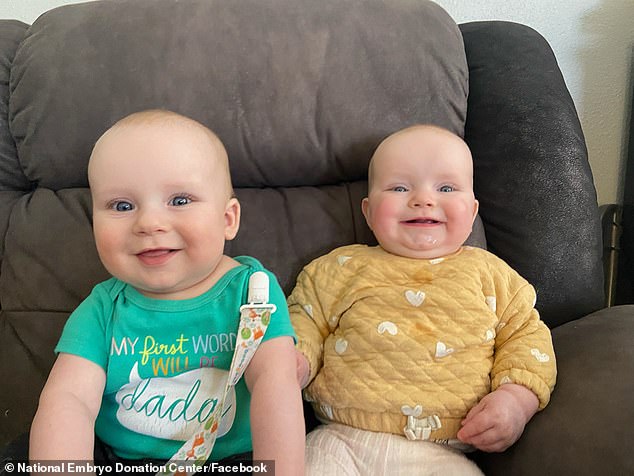
Timothy and Lydia Ridgeway pictured above as babies in 2023
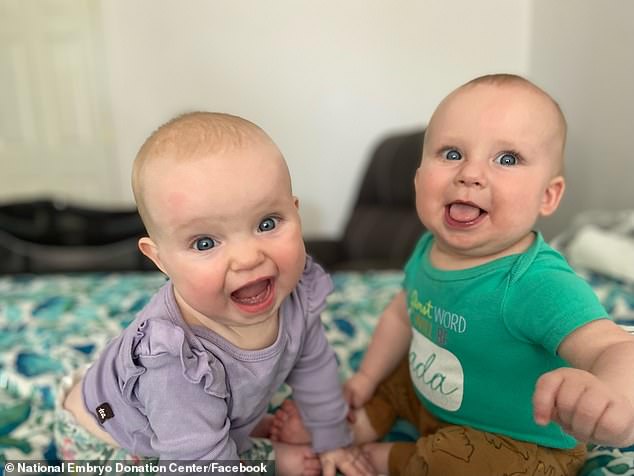
The twins were born on October 31, 2022 from embryos that had been frozen for 30 years
IVF is one of many fertility treatments available to conceive a baby. During the process, an egg is removed from the ovaries and fertilized with sperm in a laboratory. This embryo is then implanted into the woman’s uterus to grow and develop.
Because their embryos were frozen in April 1992, the twins have earned the title of oldest embryo used in a successful pregnancy, according to the Guinness World Records.
Before the twins, the record holder was Molly Gibson, born in 2020 from an embryo that had been frozen for almost 27 years.
The babies’ biological parents stored their embryos in a fertility lab for 15 years before donating them to the donation center, a facility in Knoxville, Tennessee, where only heterosexual couples who have been married for at least three years can adopt embryos.
Their adoptive mother and father, Rachel and Philip Ridgeway, were just three and five years old respectively when their children’s embryos were frozen.
Mr Ridgeway, 36, said Insider shortly after the birth of the twins: it’s mind-boggling to think about. Almost everyone we’ve spoken to has difficulty wrapping their heads around it.’
Prior to their adoption journey, the Ridgeways already had four children between the ages of two and eight, but they wanted to continue expanding their family.
The couple had received ‘fertility assistance’ to conceive their eldest three children and Mrs Ridgeway was taking hormone-boosting drugs to increase the chances of having a child.
Rather than undergo any more fertility treatments, the couple planned to use the money they would have spent to adopt an embryo. However, they were surprised to learn that they had their fourth child naturally in 2020.
Still, they wanted to continue expanding their family and in March 2022 they visited NEDC.
Mr Ridgeway said: ‘We’ve always thought, ‘Let’s have as many children as God wants to give us.’ We thought, ‘If that’s God’s will, we’re not done yet.’
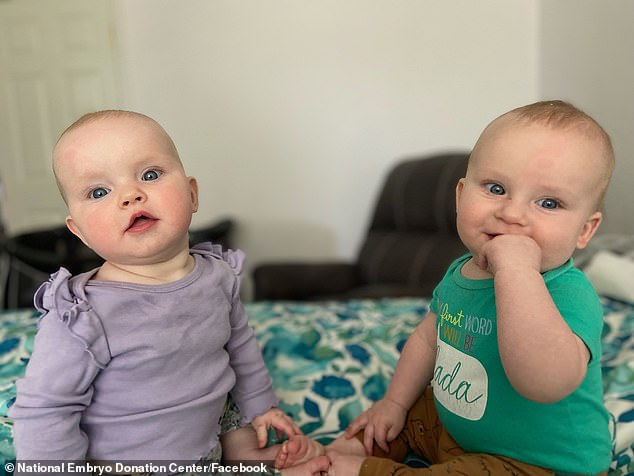
The twins’ biological father had died of ALS, Amyotrophic Lateral Sclerosis, also known as Lou Gehrig’s disease, but their adoptive parents, Rachel and Philip, had no hesitation in choosing their embryos.
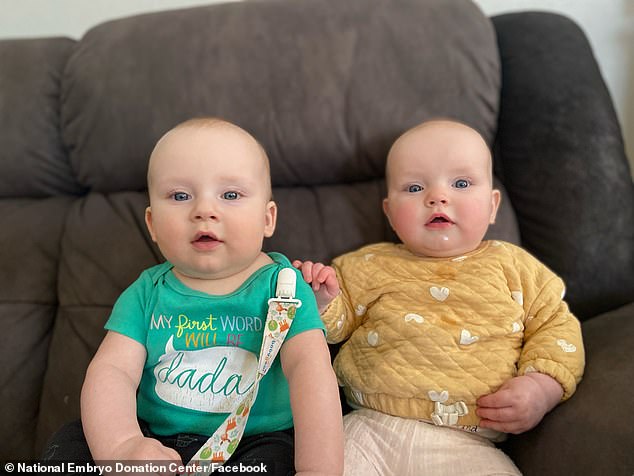
The Ridgeways already had six children before the twins were born, but wanted to continue expanding their family and attended the NEDC in March 2022
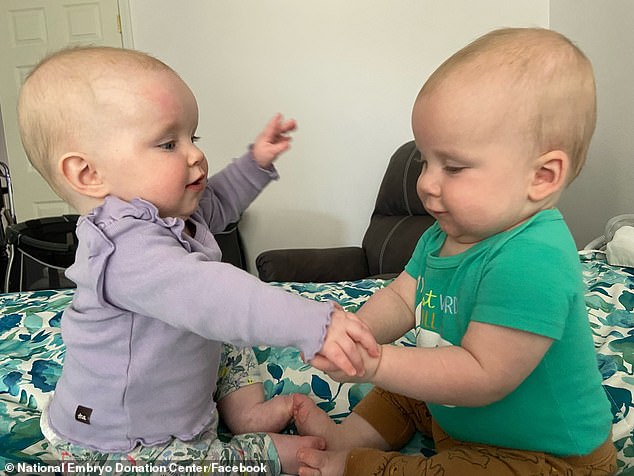
The twins, now one year old, celebrated their first birthday earlier this week with chocolate cake and balloons.
Unlike most, the couple, who are devout Catholics, chose their embryos from NEDC’s ‘special consideration’ bank.
Mrs Ridgeway, 35, said: ‘These embryos are often overlooked because they were donated by parents with a known history of certain genetic conditions.
“We found that these children are rarely looked at because many parents involved in the process wonder what they might have.”
When the NEDC informed the Ridgeways that the father of the embryos had died of ALS, Amyotrophic Lateral Sclerosis, also known as Lou Gehrig’s disease, they did not hesitate to choose these embryos.
ALS is a fatal disease of the nervous system that weakens muscles and affects physical function. Family members of people with ALS are at a slightly increased risk for the disease, but the overall risk is very low and most will not develop ALS.
About 10 percent of all ALS cases are familial, hereditary or genetic.
Mrs Ridgewood said: ‘We decided we were going to look for children who had waited the longest in a sense, because they might not have been perfect.
The parents reported that their pediatrician said the babies are healthy.
“They have a potential flaw that seems silly to us, because we all have potential flaws. We all have the potential to develop all kinds of diseases, illnesses or whatever.”
Their eldest child, a nine-year-old daughter, has epilepsy and asthma, but Ms Ridgeway told Insider: ‘We don’t love her any less because of these conditions.’
The twins, now one year old, celebrated their first birthday earlier this week with chocolate cake and balloons.
Mrs Ridgeway added: ‘As believers in God (we felt the twins) should be given the chance at life.’
